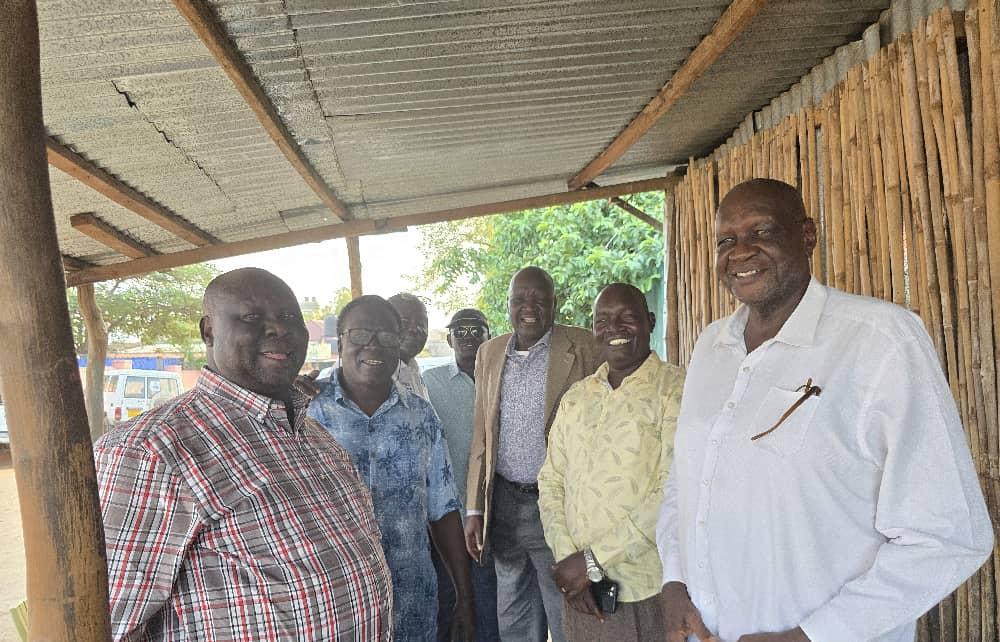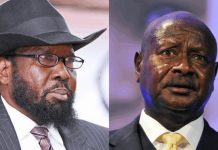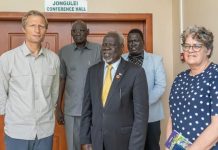Africa-Press – South-Sudan. A group of South Sudanese intellectuals is calling on the country’s youth to draw inspiration from the lives and legacies of national icons Joseph Lagu, Abel Alier, and Aggrey Jaden Ladu to foster peaceful coexistence and a united South Sudan.
Members of the Hajar El Sabor Society made the call during an exclusive interview with Eye Radio over the weekend in Juba.
They emphasized the importance of civic values, unity, and historical awareness in breaking the cycle of conflict and underdevelopment.
The group described the three historic figures as exemplary leaders whose patriotism, resilience, and pragmatic leadership should guide South Sudan’s younger generation.
Joseph Lagu, a leading figure in the First Sudanese Civil War, later became a unifying force in post-war governance.
He is widely praised for his military discipline, strategic diplomacy, and ability to bridge ethnic and political divides.
Abel Alier, South Sudan’s first President of the High Executive Council, is remembered for his legal intellect, dedication to the rule of law, and efforts to achieve regional autonomy through peaceful negotiation.
Speaking on behalf of the society, President Dr. Edward Quirino Bepo said: “Unity is paramount. For example, if we do not gather here today, the community would wonder why we are absent—especially now that the Atlabara neighborhood includes many of our foreign brothers. When they see us present, they feel peace, and we express that peace in a beautiful way.”
Yai Deng Malual, an executive member of the society and a businessman, echoed these sentiments and emphasized the importance of unity beyond tribal lines.
“Hajar El Sabor plays a big role among youth. Across South Sudan, there should be gatherings like this—where tribes come together. Here, you find the Shilluk, the Dinka, and all others. I am Dinka and have lived peacefully here with my brothers. Even when there are rumors of violence, I do not engage in it,” he said.
Edward Satimon Yugu, Vice President of the Society, expressed concern over the lack of programs to engage youth in national development.
“Youth are the future of this country, but in reality, they are the ones who are most lost. This is due to the absence of structured activities, from school years to adulthood. The state budget is not enough to support meaningful youth engagement,” he said.
Another member, Dr. Cosmas Pitia Kuju, suggested reintroducing elements from past education systems to instill discipline and patriotism in young people.
“From my experience growing up during the time of President Gaafar Nimeiri, we had a system called ‘Vanguard’ that taught us discipline, organization, and love for country and national symbols. We participated in youth centers and camps that nurtured national pride and social responsibility,” he said.
The Hajar El Sabor Society is a non-political platform that brings together South Sudanese intellectuals and professionals from various sectors.
Its name was inspired by the legacy of Aggrey Jaden Ladu, a leading figure in the struggle for South Sudan’s independence.
Jaden, born in the mid-1920s in Loka Village, is remembered for his unwavering commitment to freedom. The society’s name is symbolically derived from the two rocks that stand outside his home in Atlabara, Juba—a representation of resilience and enduring national spirit.
He passed away in 1987 in Nairobi, Kenya.
For More News And Analysis About South-Sudan Follow Africa-Press






